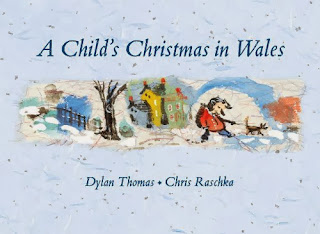And now for something completely different, to quote the famous line from the Monty Python TV show.
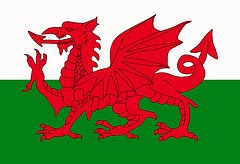 |
Welsh national flag http://www.flickr.com/photos/giveawayboy/3315988466/ |
The land of my birth is Wales, which has its own language and traditions, different from those of the rest of the United Kingdom. The Welsh language, a Celtic language, is still spoken, though by a minority, and a few of the ancient traditions are kept alive or have a enjoyed a revival in recent years. Poetry and music is the essence of Welsh culture and very evident in Welsh Christmas and New Year’s traditions.
The main ancient Welsh Christmas customs include plygain. This was a carol singing event that took place very early on Christmas morning. Traditionally, the carols were sung unaccompanied in three or four-part harmony by groups of men. Often they were composed for the occasion and took the name of the singers’ family or family farm. The singing could go on for two or three hours in rural churches ablaze with the lights of highly decorated candles. The women stayed at home, decorating their houses with mistletoe and holly, cooking and making toffee for the feast and festivities that would follow the plygain. In the nineteenth century there are accounts of women joining their men folk in the plygain. And plygains held today of course include women.
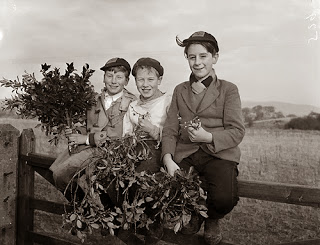 |
| Boys from Trawsfynydd collecting holly and mistletoe to sell by Geoff Charles (1959; National Library of Wales collection) |
Plygain Carols—Videos
Plygain Carol Carol y Swper
Plygain Carol played on Welsh Bagpipes
Toffee Making
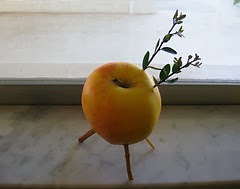 |
| Calennig by Bill Rogers |
Another ancient custom is the calennig, meaning “first day of the month.” This custom mainly took place on New Year’s Eve, when groups of boys visited their neighbors, sang songs, and offered a decorated good-luck apple in exchange for coins or little cakes. The custom is said to date back to Roman Britain in the fourth century AD when neighbors offered each other olive branches as peace offerings at the beginning of a new year.
For more information on the calennig and other customs see:
For more information on the calennig and other customs see:
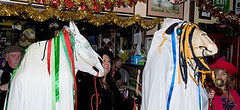 |
| Two maris by Paul Seligman |
Welsh Christmas and New Year’s Traditions
BBC’s Wales Christmas page
No account of a Welsh Christmas would be complete without Dylan Thomas’s immortal A Child’s Christmas in Wales, the Welsh poet’s lyrical and nostalgic remembrances of his own childhood Christmases.
Dylan Thomas reads A Child’s Christmas in Wales
Tom Jones Reads A Child’s Christmas in Wales with the Treorchy Male Choir
Text of A Child’s Christmas in Wales
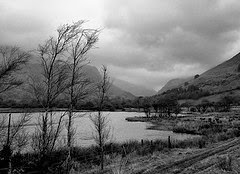 |
| Cad Valley across Tal y Llyn by Jez B |
And another lyrical view of a rural
Welsh Christmas, this time in Corris,
near Snowdonia and Lake Tal y Llyn: A Welsh Christmas Fairy Story on YouTube at
0 Comments on Christmas in Wales as of 1/1/1900
Add a Comment



